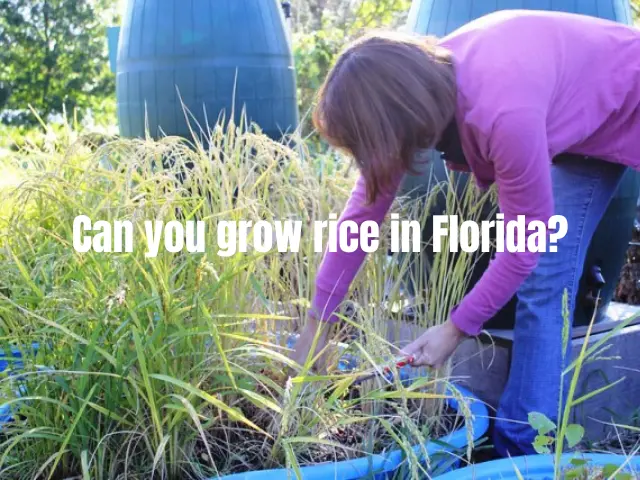Rice is a staple food for more than half of the world’s population, but its cultivation is often associated with specific regions like Asia or the Southern United States. However, with its unique climate and agricultural landscape, many wonder: Can you grow rice in Florida? Let’s delve into this question and explore the possibilities.
FAQs About Growing Rice in Florida:
- Is Florida’s Climate Suitable for Rice Cultivation? Florida’s climate is indeed suitable for growing rice. With its warm temperatures, ample sunshine, and abundant rainfall, particularly during the summer months, many parts of Florida offer ideal conditions for rice cultivation.
- What Types of Rice Can Be Grown in Florida? Several types of rice can be successfully grown in Florida, including long-grain, medium-grain, and short-grain varieties. The choice of rice variety often depends on factors such as soil type, water availability, and intended use (e.g., culinary vs. industrial).
- Do I Need Specialized Equipment to Grow Rice in Florida? While rice cultivation does require certain equipment and infrastructure, such as levees, water pumps, and irrigation systems, it’s not necessarily more specialized than other types of crop farming. Many of the tools and techniques used in traditional agriculture can be adapted for rice cultivation in Florida.
- How Much Water Is Needed to Grow Rice in Florida? Rice is a semi-aquatic crop and requires a significant amount of water for successful growth. In Florida, where water resources are carefully managed, rice cultivation typically relies on controlled irrigation systems to maintain the necessary moisture levels throughout the growing season.
- Are There Any Challenges to Growing Rice in Florida? Like any agricultural endeavor, rice cultivation in Florida does come with its challenges. Pests, diseases, and weeds can pose significant threats to rice crops, requiring diligent pest management strategies. Additionally, ensuring proper water management and nutrient supplementation are essential for maximizing yields and minimizing environmental impact.
- Can Rice Cultivation in Florida Be Sustainable? With careful planning and management, rice cultivation in Florida can indeed be sustainable. Practices such as water-efficient irrigation, integrated pest management, crop rotation, and soil conservation techniques can help minimize the environmental footprint of rice farming while maintaining productivity and profitability.
- Is There Support Available for Those Interested in Growing Rice in Florida? Yes, there are resources and support available for farmers interested in rice cultivation in Florida. Agricultural extension services, research institutions, and industry associations offer guidance, technical assistance, and educational programs to help farmers navigate the complexities of rice farming and maximize their success.
Conclusion: In conclusion, while rice may not be as commonly associated with Florida as it is with other regions, the state’s climate and agricultural infrastructure offer promising opportunities for rice cultivation. With the right knowledge, resources, and dedication, farmers in Florida can successfully grow rice and contribute to the diversity and sustainability of the state’s agricultural sector. Whether for local consumption or export markets, rice farming in Florida holds the potential to thrive and meet the growing demand for this essential food staple.

